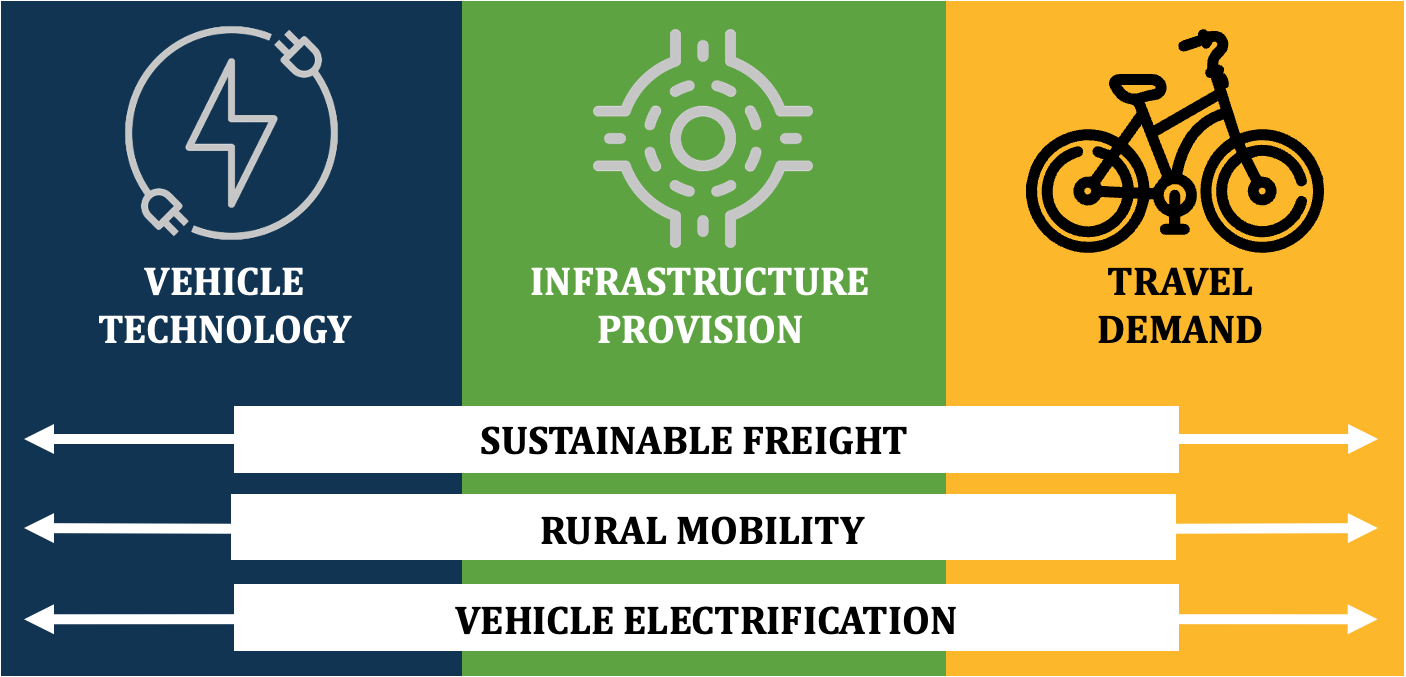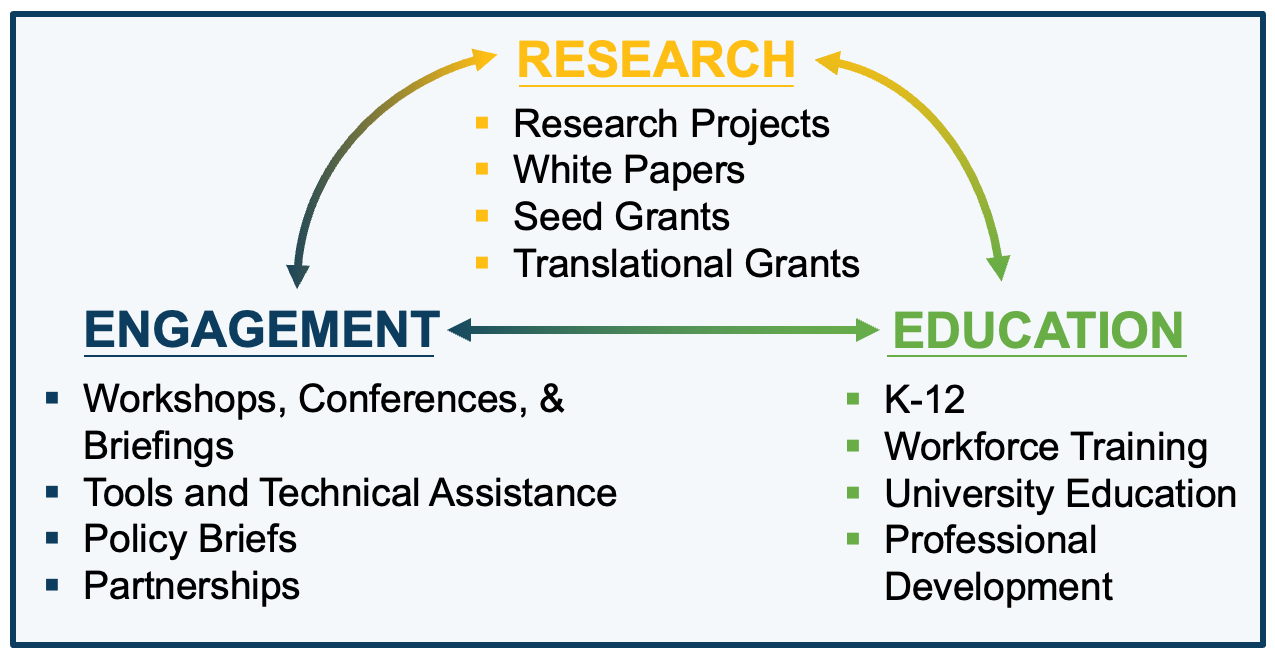The NCST produces research that supported innovation in policy by informing legislation and regulation, reforming professional practices, and reshaping programs and plans. Our work contributes to fundamental policy transformation in a way that ensures that the benefits of the transportation system are broadly distributed in society.
We support policy innovation through four kinds of research activities inspired by the U.S. DOT goal of matching research and policy to advance breakthroughs:
- building tools to support policy making, including datasets, lifecycle assessments, and predictive simulation models that support scenario planning;
- developing policy elements, such as evidence-based standards, model regulations, pricing strategies, funding strategies, and others;
- conducting evaluation studies that assess the outcomes of policies using techniques such as experimental designs and econometric modeling; and
- undertaking basic research that provides a solid foundation for each of these activities by improving our understanding of the transportation system.
Our work focuses on three critical transportation domains that span both passenger and freight travel, all modes of travel, and all travel settings: vehicle technology, infrastructure provision, and travel demand. New initiatives include cutting-edge research on the critical issues of vehicle electrification, rural mobility, and sustainable freight.

NCST research is disseminated through printed materials, events, briefings, webinars, social media, and other techniques—and we go beyond dissemination to truly engage stakeholders in shaping our research program. Our education programs provide a conduit for the products of our research to our students, who then bring this knowledge to their work in the transportation field. In these ways, the three elements of the NCST program are complementary and intertwined:
- We deliver a cutting-edge research program that provides the new tools and datasets, policy elements, evaluation studies, and basic knowledge necessary for a policy transformation that equitably decarbonizes the transportation system;
- We shape and deliver our products through an innovative engagement program using multiple techniques and involving all levels of government, tribal councils, other public and private sector stakeholders, and communities themselves;
- We provide education and workforce development programs, including community college collaborations, that build multiple pathways to careers in transportation, diversify the transportation workforce, and provide the training needed to take on the challenges of equitable decarbonization.

The NCST’s activities contribute to accelerated adoption of vehicles and fuels and new approaches to infrastructure provision and systems operation that lessen environmental impacts. These transformations help improve the transportation sector, increase innovation and workforce development, and support economic vitality.
